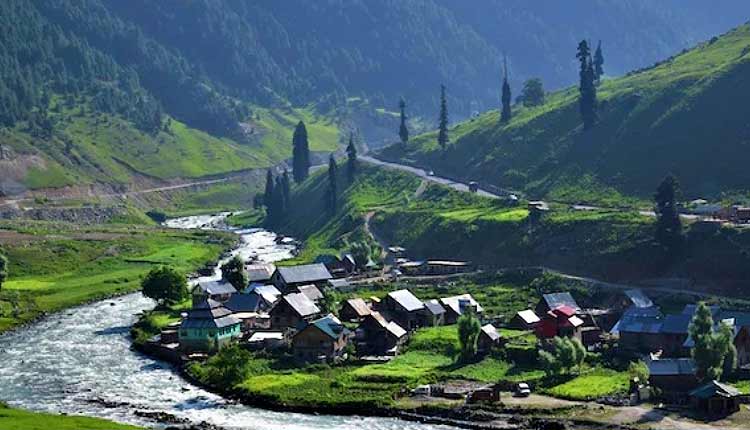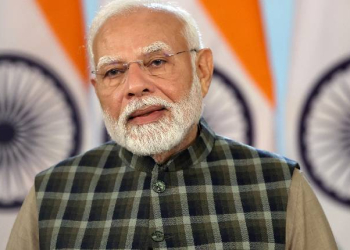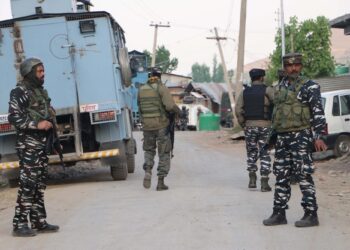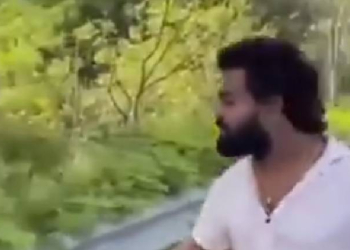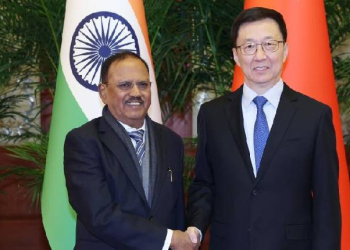Srinagar: All monopolies on government lands in cities, towns and health resorts in Jammu and Kashmir will end after the implementation of new Land Grants Rules, 2022.
In a landmark decision, the J&K government on Tuesday notified new Land Grants Rules extinguishing all the previous rules on the subject.
Under the provisions of the new rules all outgoing lessees will have to handover possession of land to the government which they had taken on lease where leases have either expired or were determined prior to rules as ‘not to be renewed’.
The Land Grants Rules 2022 state, “All the outgoing lessees (except in the case of subsisting/expired leases for residential purposes) shall immediately handover the possession of the land taken on lease to the government, failing which the outgoing lessee shall be evicted as per the provisions of public premises (eviction of unauthorised occupant) Act, 1988”.
The rules, however, state that the outgoing lessees shall, however, be paid for any improvement carried out or structure constructed thereon at the value assessed as provided under Sub-Rule (xi) of Rule 13 provided that the lessee has not violated any of the conditions of the lease.
The new rules further say: “All leases (except the subsisting /expired residential leases) including lease granted under the Jammu and Kashmir Land Grants Rules 1960, Notified Area (All Development Authorities set in Tourism Sector) Land Grants Rules, 2007 and leases expired or determined prior to the coming into force of these rules or issued under these rules shall not be renewed and shall stand determined.”
However, the government may for development of the union territory of Jammu and Kashmir grant lease of land under the provisions of these rules.
The rules state that the land could be leased for education, healthcare, agriculture and allied activities, tourism, skill development, development of traditional art, craft, culture and languages, hydro-electric projects, development of stadiums, playgrounds, gymnasiums or other recreational purposes, petrol pumps, gas pipelines, LPG bottling centers, fuel reservoir, next generation clean fuel sources CNG/CBG/ LNG/hydrogen fuel/ low Carbon fuel/any other clean fuel source with related activities/services/ utilities/infrastructures as per the established norms/industry best practices, self-employment.
The new rules say that land can be leased for housing purposes of ex-servicemen, war widows, families of deprivation categories (as per latest socio-economic census), specially-abled Persons (Divyang), families of martyr (one who has sacrificed his life in the line of duty for the sake of nation), migrant workers/ building & other construction workers, rehabilitation of sufferers of natural disasters/ calamities, specific infrastructure projects for the development of infrastructure, industries, agriculture, tourism and employment generation, laying of water mains, pipes, underground cables, cause ways, underground bridges, cables, towers, poles, stay rods, stay rails for overhead cable and likewise.
As per these rules, the land can be leased for any other purpose in the interest of the union territory of Jammu and Kashmir to be determined by the government.
The rules state that an empowered committee headed by Financial Commissioner Revenue and comprising officials from different departments would identify and designate land and the purpose for grant of the lease.
Its function will also recommend the period of grant of lease, which shall ordinarily be for 40 years.
The committee will also monitor every lease agreement entered into and the conditions thereof. The panel has also the powers to recommend to the government for cancellation of any lease.
According to the Land Grant Rules, the empowered committee shall recommend to the government a list of land, including its market value and the purpose for which land is to be granted on lease.
On receipt of recommendations, the government shall after examination of the recommendations return the same with its sanction or otherwise to the Committee through Financial Commissioner, Revenue.
“On receipt of sanction from the government, the Financial Commissioner, Revenue shall convey the same to Deputy Commissioner concerned for publication of a notice by him in Form-II for proposed auction through online mode.”
These rules have put an end to monopolies on lands by vested interest in cities, towns and health resorts.
These rules will have a long standing impact as genuine players can come forward and become stakeholders in the new vision of development for J&K.
(IANS)



